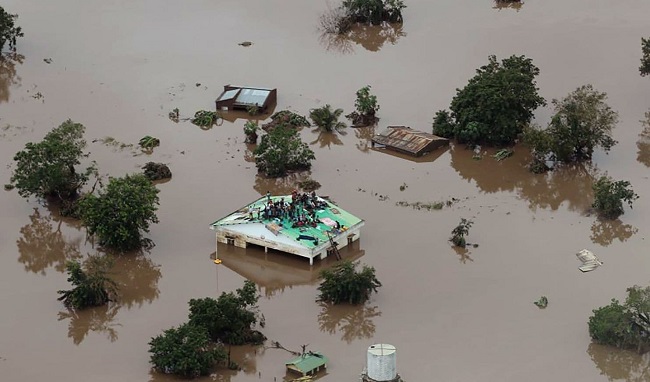The Resilient 40, a UK-Africa partnership formed in March 2019 at the Wilton Park Climate Resilience Conference: “40 under 40 to build resilience”, is calling on the United Nations to steer the focus of September’s UN Climate Summit towards climate resilience in developing nations, much like the dozen African countries represented at the round-table dialogue.

The Climate Resilience Conference: 40 under 40 to build resilience, hosted by Wilton Park in partnership with African Climate Reality Project, brought together African and UK youth environmental activists, technical and financial experts, innovators, and policy researchers for an intensive three-day round-table dialogue in Magaliesburg, South Africa.
As news of the devastation left behind by the recent Cyclone Idai flooded the airwaves, the 40 under 40 young Africans were already gathered with their counterparts from the United Kingdom, discussing the development and implementation of the very system that African countries need in order to absorb and adapt to ever-increasing environmental shocks and stresses: climate resilience.
This emerging generation of leaders came together to deliberate key policy issues to hasten sustainable development and fortify resilience in the fight against the catastrophic climate disasters that are no longer some looming, future threat.
“African voices are the most important when it comes to climate change right now because here in Africa, we are the least responsible for the impacts of climate change and we are experiencing them the most,” said Yvonne Maingey, consultant for the United Nations International Strategy for Disaster Reduction. Indeed, the continent is set to become increasingly vulnerable to extreme weather events and climatic impacts, threatening economic growth, infrastructure, and the livelihoods of all.
“Cyclone Idai is a demonstration of what the current climate can do to Africa. The minimum response should be to increase resilience to the current climate. A better response would be to increase resilience to a future climate that is well understood by IPCC projections and available through Met Services,” said Tim Donovan, Senior International Development Manager at the UK Met Office.
While Cyclone Idai was the most current example at the time of the round-table dialogue, the urgent need to increase resilience, particularly in developing nations, is made even clearer by Cyclone Kenneth, the strongest tropical cyclone to hit Mozambique in recorded history, only five weeks after Cyclone Idai made landfall.
“Resilience is a product of climate change adaptation, and adaptation requires that we change our systems, we change our governance systems, we change the way we grow our food, the way we manage our water, the way we manage our resources,” explained Samuel Chademana, Tshwane City Advisor. This systemic change is what the 40 under 40 conference participants believe the United Nations should prioritise at the next UN Climate Summit.
Dubbed “The Resilient 40”, these change makers are calling on the United Nations to steer the focus of the UN Climate Summit in September 2019 towards climate resilience in developing nations that are disproportionately affected by climate change impacts. Much as the conference has created this newly formed UK-Africa climate partnership, the United Kingdom and Malawi are taking on the role of climate resilience champions at the upcoming Climate Summit, and the two nations plan to use this opportunity to drive significant change to collectively build resilience to climate impacts.
“This is the end goal and the end call of our struggle. If each and every community can reach the state of resiliency, then we can talk about achieving the objective of combatting the effects and the impacts of climate change across the board,” said Akufuna Muyunda, Climate Reality Leader.
Being resilient to environmental shocks and stresses like
Cyclone Idai and Cyclone Kenneth, while also being able to support communities
through the radical, yet positive change that comes with
establishing climate resiliency systems is going to be a key task that sits on the shoulders of younger generations. “By focusing on resilience, the UN Summit can ensure that it’s putting young people – the leaders of the future – at the very top of their considerations,” said Laurie Laybourn-Langton, Senior Research Fellow for the Institute for Public Policy Research in London.
Africans needs to be at the forefront in finding and developing solutions that can be implemented in Africa. The continent contributes some of the lowest levels of greenhouse gas emissions from across the globe, has the least adaptive capacity to climate impacts, and yet African people are posed to bear the heaviest toll of what climate change has to bring. Much like the UK Met Office’s Tim Donovan said, it’s not important that the UN Climate Summit focuses on resilience – it’s absolutely essential.
Africa needs to be the place where younger generations lead the global conversation about what has to happen next, and what leadership looks like for a world that is radically changing; and The Resilient 40 are ready to add their voices to the discussion.
Kenyan participant and Founder of Kijani Engineering, Lillian Beauttah said, “Leave out terms like ‘empower Africans’. We should be brought to the table as equals, and everyone should know that we have an equal say.”
